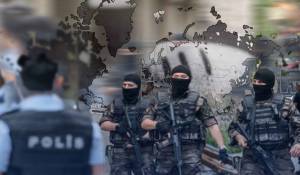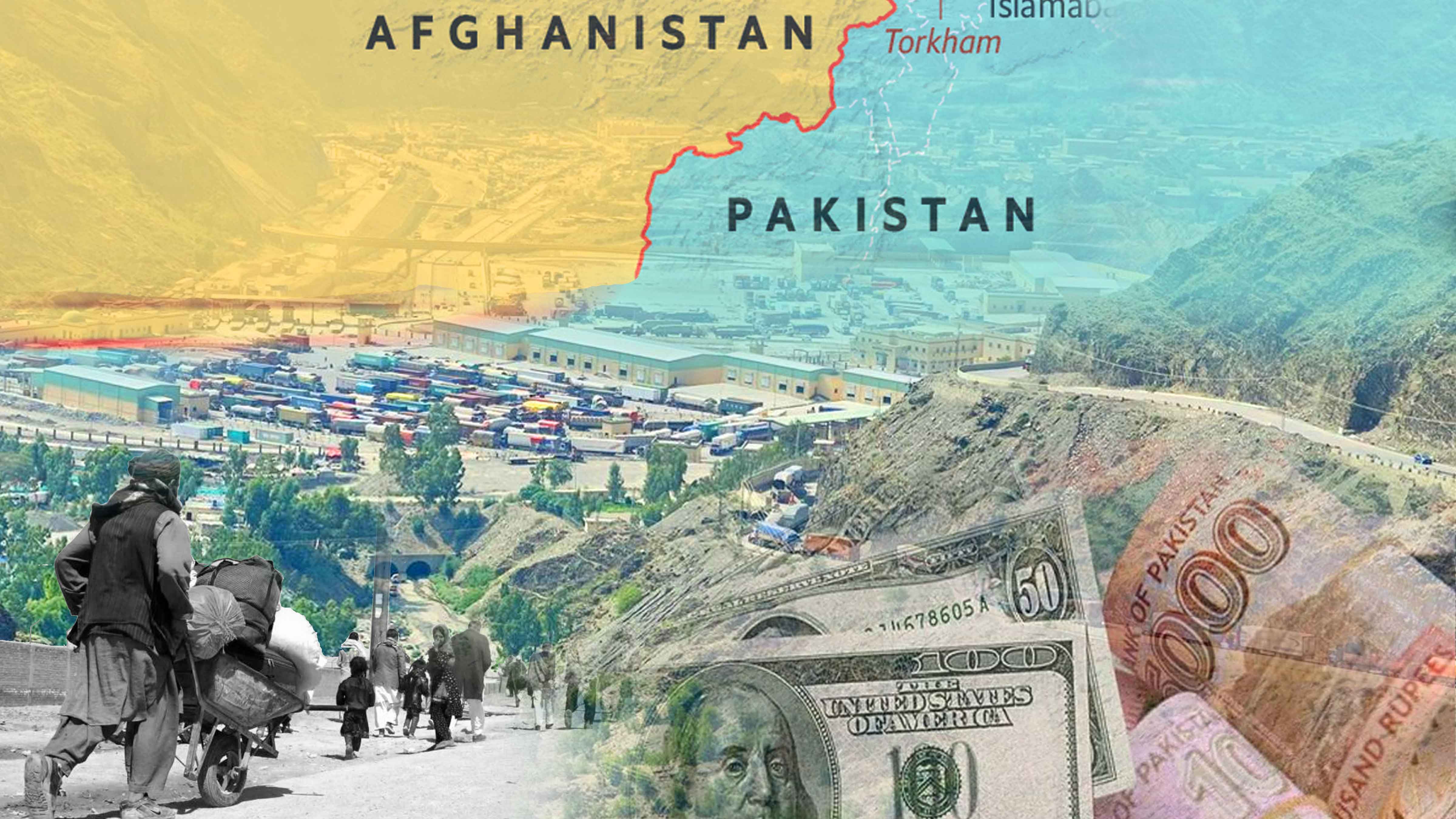
Nawab Ali Khattak

March 01, 2026
By | Nawab Ali Khattak

Pakistan is strategically positioned to serve as a hub for transit trade, enabling the movement of people and goods between various regions due to its location at the intersection of China, the Middle East, and Central Asia.
Amid being as a hub for trade potential, Pakistan's transit system, which includes laws, infrastructure, and regulations, is essential to the dynamics of trade and the economy of the country.
Pakistan's transit commerce is governed by a comprehensive legal framework that includes the rules and regulations of Customs Act of 1969 — a clear criterion for overseeing transit trade operations is established by these regulations.
According to a senior Pakistan Customs official, “Under international obligations, we provide the land routes to the landlocked countries under the UN conventions.”
Transit trade has been a big source of economic activity and employment for the transport sector, services at seaport and border ports, and en route services like petrol pumps, rest areas, tire shops, and mechanic shops, among others.
According to the official, “[Transit trade] gives services and opportunities to the people in the form of petrol pumps, loading and unloading employment, tires industry, and petrol pumps”.
Therefore, in a nutshell, transit trade acts as a lifeline for people, both inside and outside the country.
Besides the positive impacts of the transit trade, there are several inherited structural deficiencies associated with the transit system which have hampered it from unleashing its true potential and volume.
The first and foremost issue that arose out of transit trade was the surge in illicit or illegal trade. According to the Customs official, “When the import regime got strong and a shortage of dollar was felt across the country, the government of Pakistan decided to put the smuggling-prone items into the negative items. As a result, the government put a 10 percent tax on it. Therefore, if any item still entered the country, it had to undergo the process of taxation.
However, there are several problems associated with the decision even after the imposition of taxes. According to the official, “Even if we put several items under the ban category, the smugglers would still find a way out through Iran and dump their items into Pakistan.”
According to Customs data estimates, “Customs officers in the bordering areas seized cars worth Rs1,352 million from 2018 to 2023.”
However, the actual value of the underlying operational informal trade far exceeds the amount discussed.
Besides that, the Afghanistan-Pakistan Transit commerce Agreement (APTTA) has also been faced with several challenges. Under the Customs Rules of 1969, the APTTA explicitly forbids the transit of a number of products, including weapons, ammo, military hardware, and chemicals that might be used illegally.
However, there are several factors involved in the APTTA 2010 transit trade system.
The major issue with the APTTA is not giving any access to the Afghanistan trade to flow into India and out of it through Pakistan. “The core problems of the APTTA are related to accessing to India via land routes”, Shahbaz Rana, economic correspondent at The Express Tribune who covers Pakistan's economy extensively told The Khorasan Diary.
Pakistan is not willing to give any access to Afghan trucks traveling to India. As a result of which, the country has failed to extract any revenue from the growing resources in Afghanistan, especially after the resurgence of the Afghan Taliban, a change that led to an increased extraction of natural resources.
Furthermore, the intricacies of the transit trade have had an adverse impact on the diversion of Pakistan's trade. According to estimates from TheKhorasanDiary, around 59 percent of Pakistan's transit trade with Afghanistan has shifted to Iranian trade routes. This shift occurs against the backdrop of persistent issues related to border trade and its management. Delays in shipments, frequent border closures, and continuous cross-firings at the Pakistan-Afghanistan border have compelled traders to redirect their routes toward Iran.
Consequently, many other regional states, such as China and Russia, have intensified their ties with Afghanistan, diverting the natural trade away from Pakistan.
Generally, Pakistan wants to limit Afghan imports to the extent of its consumption patterns only. However, on the contrary, Afghanistan views itself as a trading nation. Therefore, its imports cannot be linked with the local consumption. Kabul, as a result, is not willing to accept the proposal of imposition of duties on imports adjustable to the extent of the goods that are transited across the border.
Similarly, our trade policies show that Pakistan conflated the domains of economy and security together. According to Rana, “Pakistan sees Afghan trade with security lenses” due to which this becomes a major obstacle to transit trade.
Until the security situation on Pakistan’s eastern borders improves and the existing trust deficit between the two countries is resolved, there is little chance of any increase in trade.
Likewise, the institutional procedure and legal documentation process have led to a hefty increase in the prices of goods imported to the country.
According to Manzoor Ellahi, the former senior vice-president of the Sarhad chamber and ex-chairman of the All-Pakistan Commercial Exporters Association of rough and cut precious stones, “At the moment, there are a lot of hurdles created by the Ministry of Commerce. For instance, undue notifications have jeopardized the transit trade by imposing 10% duties and 110% bank guarantee equivalent to Pakistani duties on each item brought under transit”.
These measures have made cost transit through Pakistan exorbitantly expensive for Afghan traders so they “diverted trade through Iran’s Chabahar port.”
Apart from this, the imposition of hefty taxes and tariffs also had a cascading impact on the trade of other states. According to Ellahi, “[When we] impose restrictions on Afghan transit trade, they also impose restrictions on Commonwealth of Independent States (CIS) transits through Afghanistan”.
As a result, it also impacts Pakistan’s transit agreement with the CIS countries indirectly.
Owing to these factors, there is an uneven distribution in the transit of forward and reverse.
In the forward transit IRO during 2022-2023, the total number of Twenty Foot Equivalent Units (TEUs) was 55,530 at the Torkham border and 15,444 at the Ghulam Khan border.
Waiting to Cross: Trucks loaded with goods bound for Afghanistan form a lengthy queue on the Torkham-Jalalabad highway. (Image Source: The Khorasan Diary)
The total value of transit for the Torkham border in this period was $1,986.41 million, while for the Ghulam Khan border, it was estimated at $827.57 million.
However, the year 2023-2024 witnessed a gradual decline in the TEUs and total value of trade. For the Torkham Border, the TEUs were estimated at around 40,147 with a trade value of $1,043.2 million. Whereas, for Ghulam Khan, it hovered at 11,052 TEUs with an estimate of $339.68 million worth of transit.
Meanwhile, as far as the forward Transit to Central Asia, the TEUs has marked a gradual increase from 2,372 in 2022-23 to 6,868 in 2023-24, with regards to Uzbekistan. While the volume of transit soared from $93.99 million to $190.58 million in 2023-24.
On the contrary, reverse transit has recorded a substantial increase, especially regarding the Torkham border. According to the statistics, the number of trucks increased from 1,269 in 2022-23 to 4.988 during 2023-24. The value of trade also witnessed a substantial increase from $122.5 million in 2022-23 to $287.67 million during 2023-24.
The items in forward transit range from edible goods, such as oils, sugar, medicines, and green tea, among others. In reverse transit, the goods primarily include dry fruits, vegetables, and other similar items.
The government can take several effective measures to fully benefit from transit trade and enhance its trade with countries like Iran.
According to Ellahi, the government should remove unnecessary restrictions like bank guarantees, while the imposition of 10 percent tax should be abolished and the APTTA agreement should be implemented, as only then can the government effectively utilize the full potential of transit trade and strengthen its trade relationships with other nations.
Similarly, to curb the issue of illicit trade from Afghanistan, the government can take measures in asking the Afghan government to carry out a survey and identify their consumption pattern.
The Pakistani government will then permit only the specified amount to pass through the transit system. According to the Customs official, “This approach will meet Afghanistan's demand while making sure that the transit does not extend towards Iran.”
Meanwhile, Afghanistan is now a developing country with massive number of natural resources. Due to this reason, the country has signed several agreements with China and a few other countries, exploring and exporting natural minerals abundantly via Pakistan through transit.
Therefore, the government of Pakistan can effectively use this as an opportunity to increase its trade volume with other states, too.
To address the currency devaluation caused by the smuggling of dollars, Pakistan could impose a $100 fee per container for transit goods. This measure could potentially generate a significant amount of foreign exchange for the country considering the economic mess it currently is in.
Separate security from trade; maintain a clear distinction between security and economic policies. Political and security issues should not impede trade relations, allowing Pakistan to fully capitalize on its transit trade potential. If Pakistan vows to increase its bilateral trade and transit trade with other countries, it will have to disband the lens of viewing the economy through the security lens.
Any political or border clash with the bordering states should not have any direct impact on the border trade between the states. Politics and security should be kept separate from the economic sphere, as only then can Pakistan fully benefit from transit trade and strengthen its bilateral trade with other countries.
And last but not least, to prevent the diversion of Pakistan's trade to Iranian routes, policymakers must implement effective measures. This should include easing legal and institutional barriers that significantly hamper trade movement between the two countries. Additionally, political and security dynamics in both nations should be viewed separately from economic considerations. Consequently, any security or political issues at the border should not result in trade disruptions.
It is high time for policymakers to evaluate the impacts of bilateral trade between Pakistan and Afghanistan and its cascading effects.
The closure of borders not only disrupts trade relations between the two countries but also has a devastating domino effect on Pakistan's transit trade with Central Asian countries, which are abundant in natural resources and raw materials. Therefore, it is crucial to ensure that the dynamics and flow of border trade are never halted.